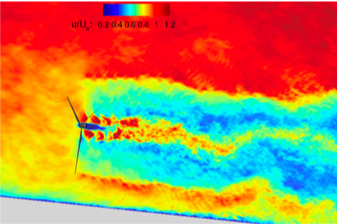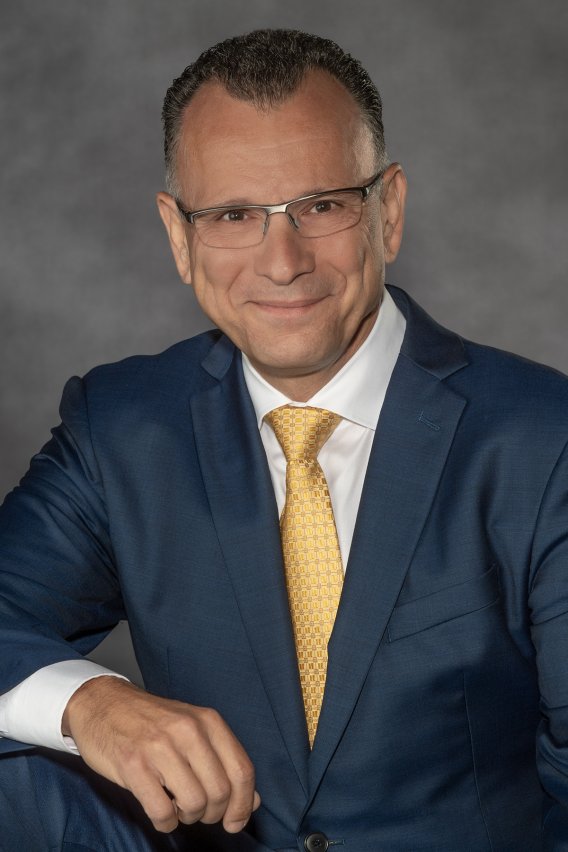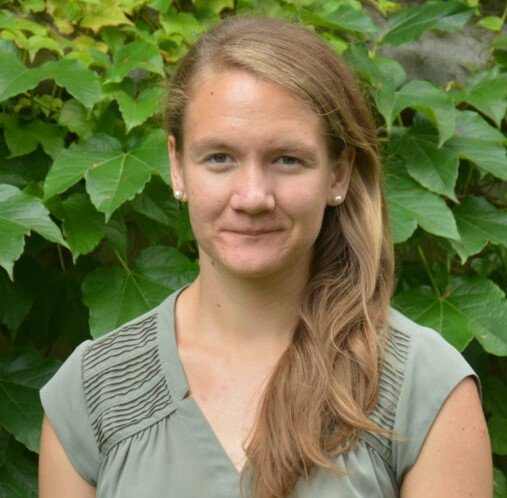Lorenz G. Straub Award Ceremony with Distinguished Lecture by Provost Fotis Sotiropoulos
Join us on Tuesday, April 19th at 3pm for a celebration of the 2020 Lorenz G. Straub Award recipient Dr. Samantha Hartzell, with a distinguished lecture by Provost Fotis Sotiropoulos.
Fotis Sotiropoulos, Provost and Senior Vice President for Academic Affairs at Virginia Commonwealth University
Title: Optimizing Wind Energy Systems via Numerical Simulation: From Novel Wake Physics and Data-Driven Models to Control Co-Design of Large Wind Farms

Abstract: Wind energy is rapidly becoming a disruptive renewable energy technology with the potential to dominate the world’s electric energy production portfolio. Realizing this goal, however, necessitates broadening the focus of research from the individual turbine to integrated, interconnected multi-turbine wind farms. Recent high-fidelity large-eddy simulations (LES) coupled with laboratory and field scale experiments have revolutionized our understanding of the rich dynamics of wind turbine wakes, elucidated the impact of near-wake phenomena to far wake meandering, and yielded striking insights into the effects of turbine-induced coherent structures to wind-farm scale dynamics. In this talk I will discuss the challenges and opportunities for high-fidelity modeling as a powerful tool for enabling wind-farm optimization. I will review recent advances in developing a high-fidelity, fluid-structure interaction computational framework for carrying out large-eddy simulation of atmospheric turbulence past land-based and offshore wind-farms in arbitrarily complex terrains incorporating wind turbine blade aerolasticity and turbine controllers. I will present recent results that: 1) illustrate the ability of high-fidelity simulations to serve as a powerful tool of scientific discovery by augmenting knowledge derived from laboratory and field scale experiments to uncover novel complex flow physics; 2) demonstrate the predictive capability of high-fidelity simulations when applied to utility-scale wind farms; and 3) show for the first time that coupling ambient turbulent flow with advanced turbine control strategies (individual blade pitch control) can reduce blade bending loads pointing to the potential of control co-design as a powerful approach for reducing the levelized cost of energy of large wind farms. Finally, I will demonstrate the efficacy of developing highly efficient LES-data-trained reduced order models using machine learning and convolutional neural networks, which paves the way for a powerful computational framework for control co-design and optimization of large wind farms.

About the speaker: Fotis Sotiropoulos serves as the Provost and Senior Vice President for Academic Affairs at Virginia Commonwealth University. Prior to that he was Dean of the College of Engineering and Applied Sciences and State University of New York (SUNY) Distinguished Professor of Civil Engineering at Stony Brook University (2015-2021). Before joining Stony Brook University, he was the James L. Record Professor of Civil Engineering; Director of the St. Anthony Falls Laboratory; and Director of the EOLOS wind energy research consortium at the University of Minnesota, Twin Cities (2006-2015). Prior to that, he was on the faculty of the School of Civil and Environmental Engineering at the Georgia Institute of Technology, with a joint appointment in the G. W. Woodruff School of Mechanical Engineering (1995-2005). His research focuses on simulation-based engineering science for tackling complex, societally relevant fluid mechanics problems in renewable energy, environmental and human health applications. He has authored over 200 peer reviewed journal papers and book chapters and his research results have been featured on the cover of several prestigious journals. He is the 2019 recipient of the American Geophysical Union (AGU) Borland Lecture award, the 2017 recipient of the Hunter Rouse Hydraulic Engineering Award from the American Society of Civil Engineers (ASCE), Fellow of the American Physical Society (APS) and the American Society of Mechanical Engineers (ASME), and a recipient of a Career Award from the National Science Foundation. He has twice won the APS Division of Fluid Dynamics Gallery of Fluid Motion (2009, 2011), is a 2014 distinguished lecturer of the Mortimer and Raymond Sackler Institute of Advanced Studies at Tel Aviv University and has served on the editorial boards of several journals.
2020 Lorenz G. Straub Recipient Samantha Hartzell, Assistant Professor in the Department of Civil and Environmental Engineering at Portland State University
Doctoral thesis: The role of CAM photosynthesis in the soil-plant-atmosphere continuum
Abstract: In arid and semiarid climates, water availability often limits the potential for food security, energy production, and carbon storage. One avenue for water conservation is through Crassulacean acid metabolism (CAM) photosynthesis, a pathway which naturally occurs in up to 50% of the total plant biomass in dryland ecosystems. Vegetation with this pathway utilizes an inverted circadian rhythm to achieve a water use efficiency six to ten times higher than that of typical C3 plants. Here I will introduce advances in the modeling of CAM photosynthesis and water use, including an analysis of its nonlinear dynamics in response to environmental forcing and the emergence of chaotic behavior (as observed in nature). This treatment of the CAM circadian rhythm enables the development of a unified model of all three photosynthetic pathways (C3, C4, and CAM) coupled hydraulically to soil and atmospheric conditions. Results predict CAM water use at the plot scale for the first time and allow carbon and water exchanges to be compared consistently among the three photosynthetic pathways.

About the speaker: Samantha Hartzell is an assistant professor at Portland State University. Her research interests focus on both urban and dryland ecohydrology, and she has recently received funding from the National Science Foundation to study impacts of vegetation type on green roof runoff reduction. She was a National Science Foundation Graduate Research Fellow at Duke University, where she received her M.S. in 2017, and Princeton University, where she received her Ph.D. in 2020. Her doctoral thesis, supervised by Prof. Amilare Porporato, is entitled “The role of CAM photosynthesis in the soil-plant-atmosphere continuum.” Dr. Hartzell’s work on the unified modeling of C3, C4, and CAM photosynthesis received the Robert H. Socolow Carbon Mitigation Initiative best paper award for Princeton University graduate students in 2020. She is a member of the National Association of Geoscience teachers, the American Geophysical Union, and the Chi Epsilon Civil Engineering Honor Society.
History of the Fellowship: The Lorenz G. Straub Award is awarded annually for the most meritorious thesis in hydraulic engineering, ecohydraulics, or a related field. Applicants are internationally entered and nominations may be made by any recognized civil and environmental engineering program in the world. The establishment of the Lorenz G. Straub Award was announced at the dedication of the Lorenz G. Straub Memorial Library within St. Anthony Falls Laboratory by Edward Silberman. When the Straub Award was established, it was recognized that it was unique in its nature. In the years of its existence, it has come to be widely recognized professionally and has accrued much honor to its recipients.
